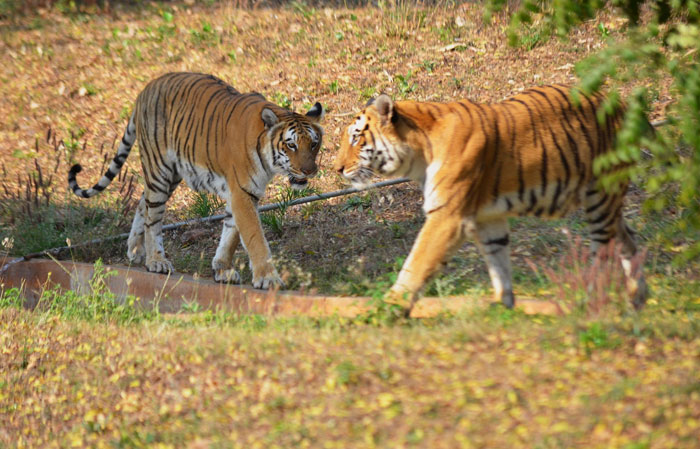Big Blow To Tiger Conservation As Over 20 Big Cats Still Die In Indian Zoos Every Year

Over 20 tigers die every year in captivity in zoos across India, according to the Association of Indian Zoo and Wildlife Veterinarians (AIZWV), which analysed raw data available with the Central Zoo Authority. In 2015-16, there were 245 tigers and 99 white tigers in captivity in the country. In the same year, 16 white tigers and 28 ordinary tigers died in zoos, according to AIZWV.
Ordinary tigers are housed in 60 zoos, including large, medium and small-sized zoos, while white Bengal tigers are present in 27 zoos spread across the country. AIZWV stated that the number of ordinary tigers in captivity has been continuously decreasing for the past four years. From 295 in 2011-12, it came down to 245 in 2015-16. However, the highest number of deaths of white Bengal tigers in the past 16 years was reported in 2015-16 with the death of 16 tigers.
AIZWV is yet to determine the cause of death among tigers in captivity. "We are trying to analyse the reasons that led to the death of tigers as we still need cooperation from various organisations. However, it seems that many new diseases, including canine distemper virus (CDV), might be responsible for mortality of tigers," president of AIZWV, B M Arora, told TOI.
Talking about the lifespan of tigers, Arora who is former principal scientist and wildlife in-charge of the Indian Veterinary Research Institute (IVRI) and ex-director of Delhi zoo said, "23 years is the maximum lifespan of tigers but if an animal survives the first year of its life (about 45% of the cubs die in their first year) it has a good chance of reaching 19 years of age when the second peak in mortality is observed. I have looked into survival records of 8 white tigers and 10 white tigresses, which lived for longer than three years, belonging to National Zoological Park in New Delhi and found average survival age of 12.46 years and 12.42 years of white tigers and tigresses respectively."
"The role of our association is to compile and analyse relevant information on wildlife health. The collected information is disseminated to all stakeholders, including researchers and academicians, so that they can be helped in their assigned task of helping improve the health of animals in captivity and in the wild," Arora added.